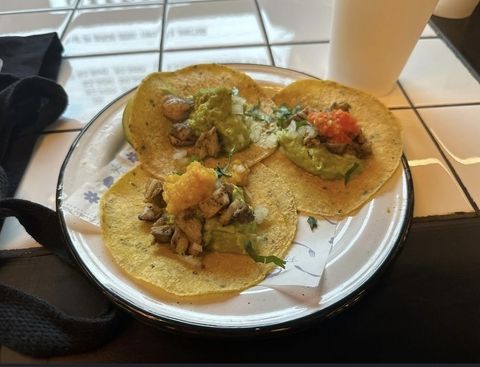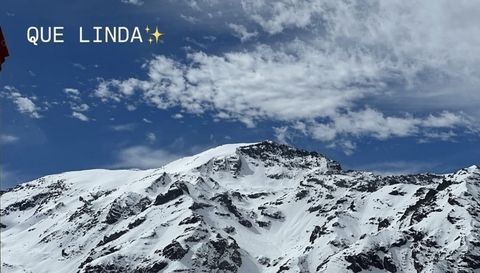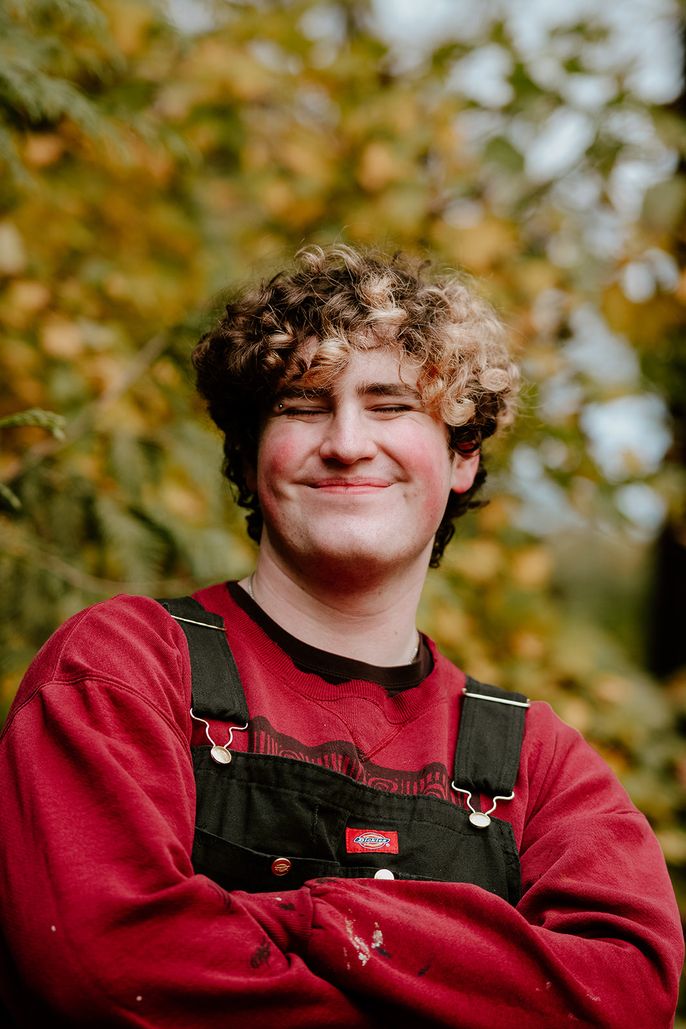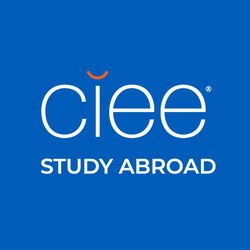CIEE Latin America Fellow Spotlight: Duncan Gallagher
Meet the CIEE Leading Change in Latin America Student Fellows!
Follow along as CIEE sends 100 student leaders on a fully-funded semester abroad through the CIEE Leading Change in Latin America Fellowship. In this series, we spotlight Fellows as they immerse themselves in Latin American culture, grow as leaders, and prepare to make an impact worldwide.
Name: Duncan Gallagher
School: Western Washington University
Major: Spanish w/ Teaching Endorsement
LATAM Location: Santiago, Chile
Q1: What excites you most about studying abroad in Latin America?
For me, one of my main goals while abroad is language immersion. I am not a native speaker of Spanish. I’ve been studying the language for around seven years now, and a classroom at university, where Spanish is only spoken for a few hours a week, can only transfer so much experience and immersion. Being in a new culture, and having to speak the majority of Spanish every day, to me, is so incredibly exciting in itself. Yes, in Latin America you can try some good new food, meet new friends, and go exploring in your free time, but I am most excited about how I can bring what I have learned abroad back to my community, my friends, and my family.

See more: Duncan shares the delicious meals he's eaten in Santiago
Q2: How do you think learning a new language can change the way you see the world?
For me, I feel like I can answer this question in (more or less) a few ways: First, the Sapir-Whorf Hypothesis essentially states that language shapes thought and experience. This has presented itself all too well for me when code switching from English and Spanish. My second answer is that language holds power, politically, specularly, and socially. I remember a time when I was in the library at my university back in the United States (Western Washington University), and I was recounting the history and literature of Sor Juana Inés de la Cruz to some of my peers. One of them said something to me that has stuck with me ever since: I would totally want to read her works, but there’s the language barrier. I, as a native speaker of English, have seen learning Spanish as both an opportunity for personal growth, and a gateway for learning about a culture and a language that is not mine. I believe that knowing even just a pichintún of Spanish – or any language at that – opens a door to interact and talk with a completely different demographic of people. Learning a language means you increase your chances and frequencies of deep talks, laughs, more serious conversations, and times where the moment is as good as the memory. There is no reason not to learn a second, or third, or fourth language. Language is a gateway to so much more of the world, and my hope is that you, the reader, would want that opportunity.
Q3: How does cultural immersion abroad help you become a more conscious global citizen?
This analogy itself has shaped so much of my thinking while abroad. Before students from my university traveled abroad, we had a required Pre-Travel Orientation, which was taught by my Global Studies professor and minor advisor Leah Lippman. Everybody in this world, no matter who, carries around an invisible, proverbial, cultural suitcase. More than 75% of culture is subconscious, and this non-present culture drives everyday actions, from deciding whether or not to jaywalk, where to sit on a bus, or how to order food “politely." Studying abroad, and traveling at that, is an opportunity to unpack this cultural suitcase, and it happens whether we want it to or not. When we experience culture shock, when somebody pins us as a foreigner, when we take note of something different, when we quietly reflect about the day, we are unpacking this suitcase in the background. Repacking this suitcase, however, is dependent on the outlook of the carrier; the amount we reflect, the differences we notice (whether exciting or shocking), and the respect we bring for learning is how we synthesize all of what is learned and experienced abroad. This suitcase can’t take a vacation, nor can it be left behind somewhere. Repacking this suitcase lies within an outlook of growth. Just because something is different, does not mean it is bad.
Q4: How do you plan to use what you learn abroad to make a difference in your community back home?
I, at the moment, consider my main “community back home” my college town. I’m hoping to bring stories, bring conviviality, bring lessons, but also bring opportunity for connection. I’m a co-director of a club at Western Washington University called La Mesa Español; anybody, from hispanohablantes, to university students that study Spanish, to adults who are learning Spanish for the first time are welcome to talk, learn, and play table games (en español) once a week for an hour or two. One of our core pillars for this club is to learn about Spanish culture with a lens of both curiosity and respect. I hope to be able to get a wider variety of people to invest themselves in the process and journey of learning a new language. I want to be a Spanish teacher in my future, and unfortunately, not every student I have will be all that interested in learning a new language – but there is a possibility of finding one small aspect of interest in everyone. One student might be more interested in the history of Latin America, while another may be more interested in learning the language itself. In a setting like La Mesa, my hope would be to obligate people to learn more about the world around them, and cultures outside of their own.

See more: Duncan travels to Valle Nevado
Q5: What parting advice do you have for other students who want to apply for this opportunity for spring 2026?
Do it. Being uncomfortable is what drives growth within ourselves – when you are placed in a different country, with a different language, and a different culture, for months at a time, it will change you in ways you have never expected. Yes, there will be moments that are messy, and vulnerable, and you might get pushed to your breaking point, but there will be moments where everything is in its place. You might have grown up near water all your life and then travel to study in an inland city, and you might step out of an Uber while visiting a coastal town and sob at the scent of salt air. You might see rain and you will maybe bask in it while the world goes silent for a moment, and you might smile to yourself within this little moment of relief. You might take a class on your first day of school where you don’t understand the majority of what the other students and professor are saying, and you might leave the campus in tears, and try and hold yourself together while talking to your neighbor about how your day was. You might make some friends that care so deeply about you, and they will ask you questions about yourself and your life, and those moments might make your heart glow a little softer every time. The LATAM Fellowship, aside from relieving an immense financial burden, opens the door to change, and to flourish. They call it a leap of faith for a reason, not a leap of fear.
Study Abroad in Latin America
Now it's your turn to experience all that Latin America study abroad has to offer!

